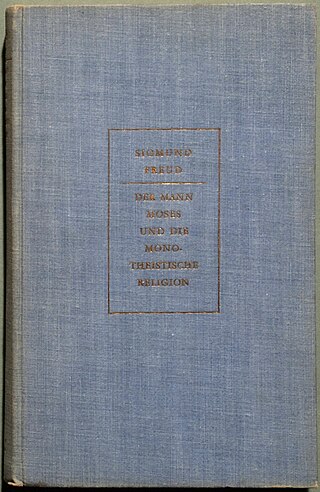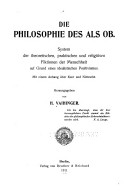Related Research Articles
Psychoanalysis is a set of theories and therapeutic techniques that deal in part with the unconscious mind, and which together form a method of treatment for mental disorders. The discipline was established in the early 1890s by Sigmund Freud, whose work stemmed partly from the clinical work of Josef Breuer and others. Freud developed and refined the theory and practice of psychoanalysis until his death in 1939. In an encyclopedic article, he identified the cornerstones of psychoanalysis as "the assumption that there are unconscious mental processes, the recognition of the theory of repression and resistance, the appreciation of the importance of sexuality and of the Oedipus complex." Freud's colleagues Alfred Adler and Carl Gustav Jung developed offshoots of psychoanalysis which they called individual psychology (Adler) and analytical psychology (Jung), although Freud himself wrote a number of criticisms of them and emphatically denied that they were forms of psychoanalysis. Psychoanalysis was later developed in different directions by neo-Freudian thinkers, such as Erich Fromm, Karen Horney, and Harry Stack Sullivan.

Sigmund Freud was an Austrian neurologist and the founder of psychoanalysis, a clinical method for evaluating and treating pathologies seen as originating from conflicts in the psyche, through dialogue between patient and psychoanalyst, and the distinctive theory of mind and human agency derived from it.
Psychoanalytic theory is the theory of personality organization and the dynamics of personality development relating to the practice of psychoanalysis, a clinical method for treating psychopathology. First laid out by Sigmund Freud in the late 19th century, psychoanalytic theory has undergone many refinements since his work. The psychoanalytic theory came to full prominence in the last third of the twentieth century as part of the flow of critical discourse regarding psychological treatments after the 1960s, long after Freud's death in 1939. Freud had ceased his analysis of the brain and his physiological studies and shifted his focus to the study of the psyche, and on treatment using free association and the phenomena of transference. His study emphasized the recognition of childhood events that could influence the mental functioning of adults. His examination of the genetic and then the developmental aspects gave the psychoanalytic theory its characteristics.
Scientism is the view that science and the scientific method are the best or only way to render truth about the world and reality.

Paul Kurtz was an American scientific skeptic and secular humanist. He has been called "the father of secular humanism". He was Professor Emeritus of Philosophy at the State University of New York at Buffalo, having previously also taught at Vassar, Trinity, and Union colleges, and the New School for Social Research.

The Interpretation of Dreams is an 1899 book by Sigmund Freud, the founder of psychoanalysis, in which the author introduces his theory of the unconscious with respect to dream interpretation, and discusses what would later become the theory of the Oedipus complex. Freud revised the book at least eight times and, in the third edition, added an extensive section which treated dream symbolism very literally, following the influence of Wilhelm Stekel. Freud said of this work, "Insight such as this falls to one's lot but once in a lifetime."
In psychoanalysis, psychosexual development is a central element of the sexual drive theory. According to Freud, personality develops through a series of childhood stages in which pleasure seeking energies from the child become focused on certain erogenous areas. An erogenous zone is characterized as an area of the body that is particularly sensitive to stimulation. The five psychosexual stages are the oral, the anal, the phallic, the latent, and the genital. The erogenous zone associated with each stage serves as a source of pleasure. Being unsatisfied at any particular stage can result in fixation. On the other hand, being satisfied can result in a healthy personality. Sigmund Freud proposed that if the child experienced frustration at any of the psychosexual developmental stages, they would experience anxiety that would persist into adulthood as a neurosis, a functional mental disorder.

The New Atlantis is a journal founded by the social conservative advocacy group the Ethics and Public Policy Center, now published by the Center for the Study of Technology and Society. It covers topics about the social, ethical, political, and policy dimensions of modern science and technology. The journal is editorially reviewed but is not peer-reviewed on scientific topics. It is edited by Ari Schulman, having previously been edited by co-founders Eric Cohen and Adam Keiper.

Moses and Monotheism is a 1939 book about the origins of monotheism written by Sigmund Freud, the founder of psychoanalysis. It is Freud's final original work and it was completed in the summer of 1939 when Freud was, effectively speaking, already "writing from his death-bed." It appeared in English translation the same year.
Freudo-Marxism is a loose designation for philosophical perspectives informed by both the Marxist philosophy of Karl Marx and the psychoanalytic theory of Sigmund Freud. Its history within continental philosophy began in the 1920s and '30s and running since through critical theory, Lacanian psychoanalysis, and post-structuralism.
In psychoanalysis, resistance is the individual's efforts to prevent repressed drives, feelings or thoughts from being integrated into conscious awareness.

The family of Sigmund Freud, the pioneer of psychoanalysis, lived in Austria and Germany until the 1930s before emigrating to England, Canada, and the United States. Several of Freud's descendants and relatives have become well known in different fields.
Todd Dufresne is a Canadian social and cultural theorist best known for his work on Sigmund Freud and the history of psychoanalysis. He is Professor of Philosophy at Lakehead University in Thunder Bay, Ontario.

The Assault on Truth: Freud's Suppression of the Seduction Theory is a book by the former psychoanalyst Jeffrey Moussaieff Masson, in which the author argues that Sigmund Freud, the founder of psychoanalysis, deliberately suppressed his early hypothesis, known as the seduction theory, that hysteria is caused by sexual abuse during infancy, because he refused to believe that children are the victims of sexual violence and abuse within their own families. Masson reached this conclusion while he had access to several of Freud's unpublished letters as projects director of the Sigmund Freud Archives. The Assault on Truth was first published in 1984 by Farrar, Straus and Giroux; several revised editions have since been published.

The Sigmund Freud Prize or Sigmund Freud Prize for Academic Prose is a German literary award named after Sigmund Freud and awarded by the Deutsche Akademie für Sprache und Dichtung. It was first awarded in 1964.
Frank Cioffi was an American philosopher educated in New York and Oxford.

The Philosophy of 'As if': A System of the Theoretical, Practical and Religious Fictions of Mankind is a 1911 book by the German philosopher Hans Vaihinger, based on his dissertation of 1877. The work for which Vaihinger is best known, it was published in an English translation by C. K. Ogden in 1924. In 1935, a revised and abbreviated English translation by Ogden was published. The revised translation was based on the sixth German edition of the original work.

The New York University Department of Philosophy offers B.A., M.A., and Ph.D. degrees in philosophy, as well as a minor in philosophy and a joint major in language and mind with the NYU Departments of Linguistics and Psychology. It is home to the New York Institute of Philosophy, a research center that supports multi-year projects, public lectures, conferences, and workshops in the field, as well as outreach programs to teach New York City high school students interested in philosophy.
Miriam Sophie Freud was an Austrian American psychosociologist, educator, and author. The granddaughter of Sigmund Freud, she was a critic of psychoanalysis, aspects of which she described as "narcissistic indulgence". Her criticisms of the elder Freud's psychoanalytical doctrines made her the "black sheep" of the family and she observed how all of her female relatives, including her mother, Ernestine, and aunt Anna, were adversely affected by Sigmund's claims about women and their internal experiences.
References
- ↑ "The 2012 Kyoto Prize Laureate". Inamori Foundation. Archived from the original on 4 March 2016. Retrieved 12 March 2016.
- ↑ "Sigmund-Freud-Preis". Deutsche Akademie für Sprache und Dichtung. Archived from the original on 14 May 2011. Retrieved 9 January 2013.
- ↑ Hughes, Austin. "The Folly of Scientism" (PDF). The New Atlantis - A Journal of Technology & Society. Archived from the original (PDF) on 24 December 2012. Retrieved 19 January 2013.
- ↑ Dworkin, Ronald W. (2012). "Psychotherapy and the Pursuit of Happiness" (PDF). The New Atlantis. Number 35: 69–83. Archived from the original (PDF) on 6 November 2012. Retrieved 19 January 2013.
- ↑ Vitello, Paul (1 February 2012). "Frank Cioffi, Philosopher and Critic of Freud, Dies at 83". The New York Times. Retrieved 7 January 2013.
- ↑ Fox, Margalit (13 March 2012). "Ruth Barcan Marcus, Philosopher-Logician, Dies at 90". The New York Times. Retrieved 7 January 2013.
- ↑ Yardley, William (16 August 2012). "Hugo Bedau, Philosopher Who Opposed Death Penalty, Dies at 85". The New York Times. Retrieved 7 January 2013.
- ↑ O'Grady, Jane (September 28, 2012). "Ray Billington obituary". 28 September 2012. London: The Guardian. Retrieved 28 February 2013.
- ↑ Weber, Bruce (23 October 2012). "Paul Kurtz, 86, Humanist Publisher, Dies". The New York Times. Retrieved 7 January 2013.
- ↑ Oppenheimer, Mark (1 October 2010). "Closer Look at Rift Between Humanists Reveals Deeper Divisions". The New York Times. Retrieved 7 January 2013.